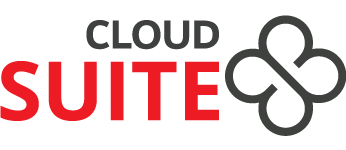Since the mid-1990s, enterprise resource planning (ERP) applications have become increasingly popular. This is especially true in the complex world of manufacturing. This is no surprise. Manufacturing businesses have so many moving parts. The more people involved in a process, the more margin for error – and opportunity for optimization. ERPs activate smoother workflows across the business through one integrated application. According to Inc.com, during the 1990s industry invested around $300 billion in ERP software. Given its reputation for being a high-cost implementation, ERPs were once the preserve of Fortune 500 companies. Small and medium-sized businesses were locked out by high upfront costs and slow ROIs.
Thanks to cloud-based options driving down prices, this is no longer the case. Thirty years on, more and more manufacturing businesses are benefiting from ERP software.
Even with the lower upfront costs that SaaS options offer, you’ll still need to know if this is right for your business before you invest. Do the benefits align with your business goals? How exactly would an ERP impact your day-to-day operations?
Let’s take a look at why manufacturing businesses are turning to ERPs for greater efficiency and a boost to their competitive advantage.
Is ERP mission critical to manufacturing?
A well-chosen ERP system can manage all aspects of your workflow and cost visibility. Inventory control is just a button tap away across every plant, warehouse, and supply chain.
As you might expect, accounting is a major part of ERP. This integrates into the system so bottom line numbers are retrievable. In many ways accounting is at the heart of ERP with better systems providing modules for data analysis and forecasting.
ERP systems have a modular design. This allows for different departments involved in a workflow to manage relevant modules. The advantage of ERP is that senior management has full visibility on workflow across plants.
Thanks to automation, many modules can perform tasks in the background. When optimized, ERP offers the manufacturing sector a great resource.
Automating ERP in manufacturing processes
One aspect ERP brings to workflow is automation. This gives businesses an opportunity to automate mission-critical processes. This frees up time, minimizes error, and improves productivity.
Consider:
- Large swathes of supply chain management are automated. Inventory re-order levels are set so that mission-critical stock never runs out. A good system factors in orders received and adjusts inventory requirements accordingly.
- From a management perspective order limits ensure that the relevant manager signs off on purchases. Most work via a hierarchical system based on spending. Senior execs have visibility based on their level of responsibility. For larger purchases, final sign off may reach the CEO level.
This aspect of ERP in the manufacturing sector allows for a common-sense approach to budgeting. Do you need a senior manager to sign off on an order for $200? You can configure your system so executives only get involved in the big spend decisions.
Automating specific manufacturing tasks
It is not only the larger scale operations that ERP automates. Specific tasks are often automated in the manufacturing environment. This often takes the form of reporting where it is necessary to understand what is happening day to day.
This provides management with the business intelligence needed to make informed decisions. It also reduces the error rate as important tasks fire off even if nobody has remembered to do them. In busy periods this can be invaluable.
Management can use the system to ensure that the plant is operating as it should be. Again, necessary reports show all the information needed to keep an eye on the operation.
Automation on a large and small scale ensure that the wheels of a manufacturing business keep turning.
Streamlining processes, reducing cost
One of the main drivers to deploy enterprise resource planning applications is cost reduction. This makes inventory management a key ERP module. Through automating reordering and calculating material usage it is now possible to keep minimal stocks. The need to hold large stocks is now rendered obsolete. This has streamlined manufacturing costs.
Automation and integration have often streamlined costs further. The better ERP systems reduce staff costs and human resources management modules are available. In some instances, the system manages aspects such as staff training, annual leave, and sick leave.
Payroll management is a feature of the HR module allowing for tighter business integration and visibility. Using automation the system ensures necessary HR functions perform on schedule. This ensures the business stays on track.
Day to day running of the plant
Another advantage of ERP is that it allows managers to run plants with a view to maximize workflow. Should one aspect of the production run into problems, the system will flag this. Alert managers can now change the workflow schedule. This minimizes disruption and helps to ensure production adheres to deadlines.
This level of management, again, streamlines costs and maximizes production.
Keeping the bottom line healthy
With the capability to reschedule workflow as needed, positive impacts ensue. Production is often increased as the production line never stops.
Actionable business intelligence makes for better decision making and prevents issues from becoming problems. The wheels very much stay on the track. All this results in a healthier balance sheet. In today’s competitive world this makes a real difference to company performance.
Supply chain visibility
Given the importance of supply chains, having full visibility of your supply chain is mission critical. Should your supply chain fail, production stops, and your plant effectively closes down. This is often catastrophic for a manufacturing business.
Good ERP systems allow you to see every aspect of the supply chain allowing you to make decisions in real time. This avoids costly delays and keeps everything running as it should do. Consider:
- You may need to order raw materials or components from a different vendor should one let you down.
- You can schedule workflow around deliveries maintaining your productivity.
- You can monitor costs and price fluctuations using alternative vendors if necessary.
- Good ERP systems can run daily reports showing the status of orders and supply.
- You can analyze every aspect of supply chain spend giving full accounting visibility.
- Mission critical inventory can be set to reorder automatically. These aspects are handled using the material resource planning module (MRP).
- ERP offers you full management control of your supply chain. Like other aspects of day to day management, correct system configuration ensures that a management hierarchy system is in place. This ensures that the right people make the right decisions.
Can you afford not to have this kind of visibility for your manufacturing business?
ERP strategic advantages
With a 360 degree view of operations developing more robust strategies becomes possible. You’ll find this new perspective leads to better-informed decisions. Consider these strategic advantages:
- You can identify bottlenecks in the supply chain and production processes.
- You can identify problematic areas of workflow and address them.
- With a 360 degree view, it is easier to configure the whole plant for maximum productivity.
- With the HR module in place, you can organize teams to compensate for sickness and absence.
- It becomes possible to maximize the productivity of your plants. You will have far greater operational insight.
- Having the big picture broken down by your ERP system gives you a unique perspective on the business. This allows you to make the necessary decisions to optimize workflow.
Once you have this operational insight you can apply this across the business. This is advantageous if you open a new plant. You can fast track and skip the learning process to optimize all plants faster and at a more favorable cost.
Final thoughts on ERP system benefits
For a manufacturing company to compete it has to be able to maximize productivity and workflow. It cannot afford to waste money and time. Management needs a grip on plant operations, costs, and be able to reconfigure operations to achieve business goals.
Good supply chain management is crucial to success. Full control and visibility are, therefore, mission critical.
As businesses are a sum of many parts, having a system that is usable throughout the business by various departments, makes for good practice. This allows senior executives to see the big picture of the whole business.
ERP focus




